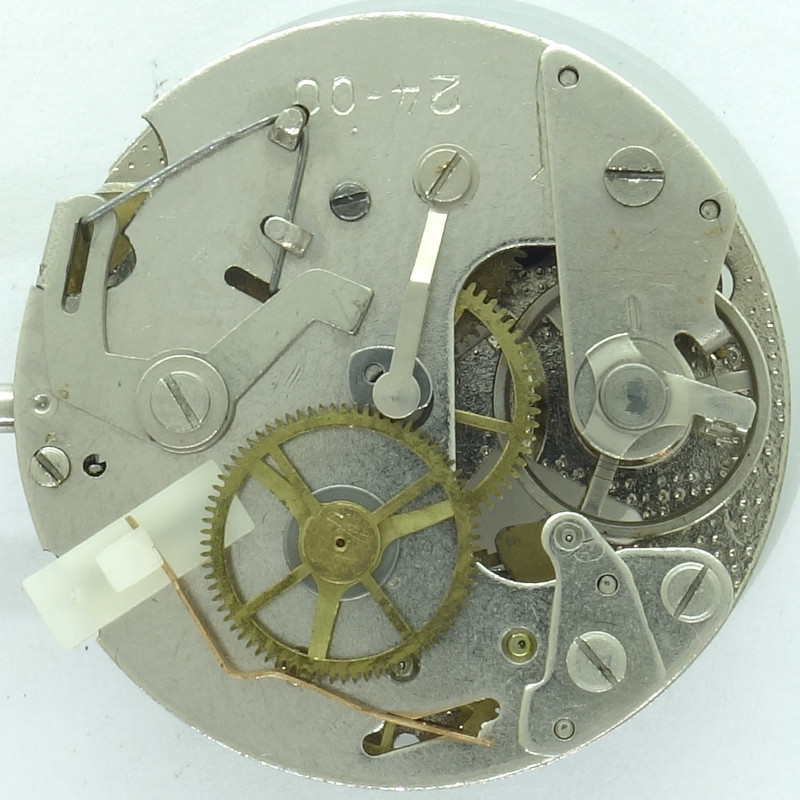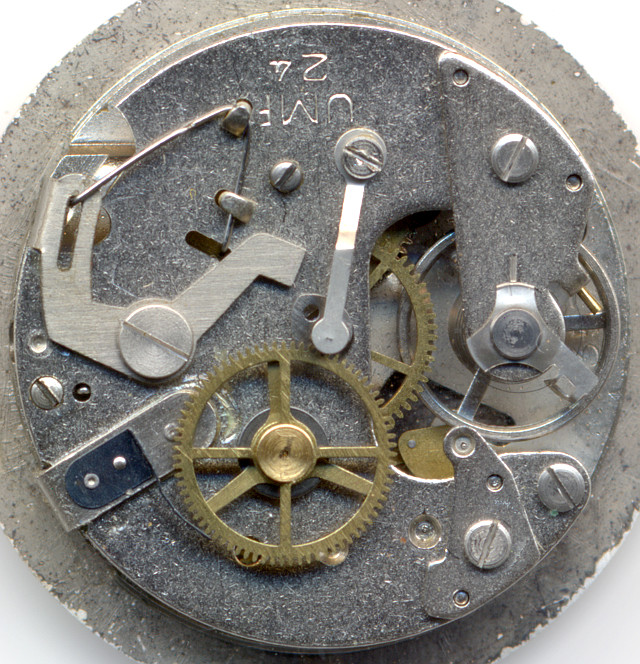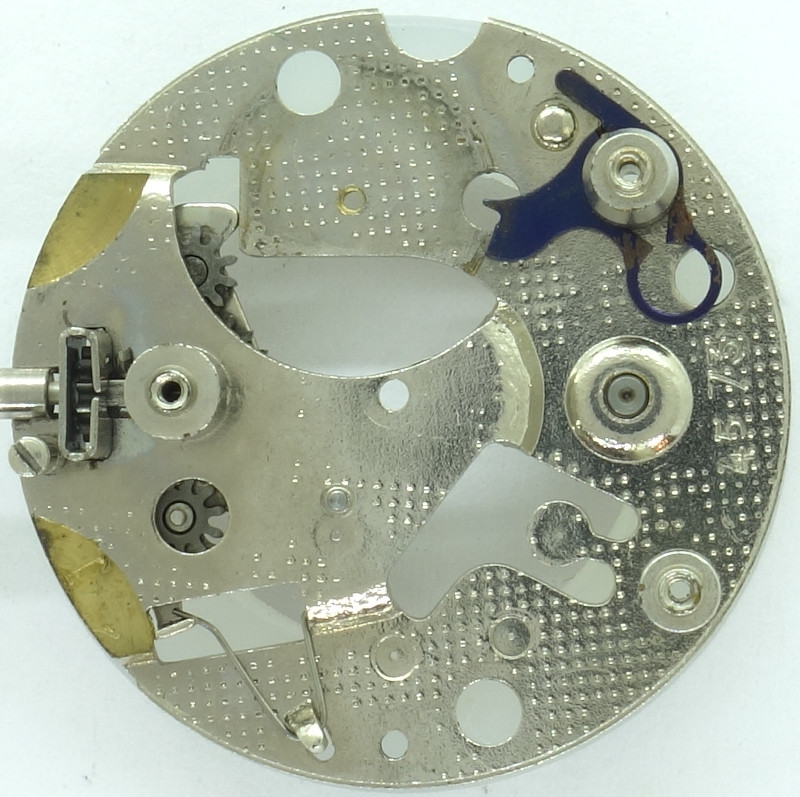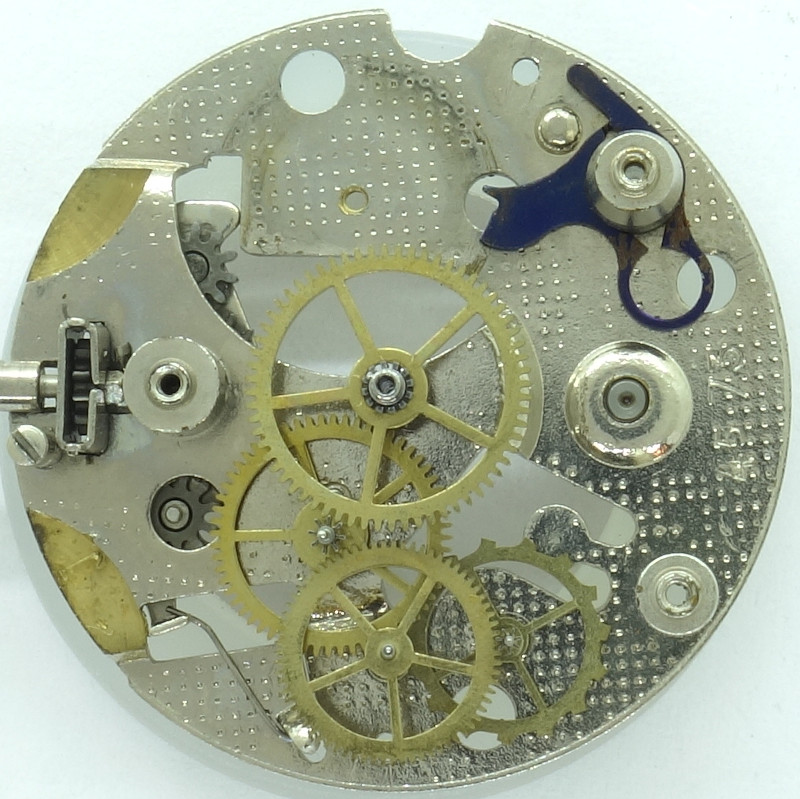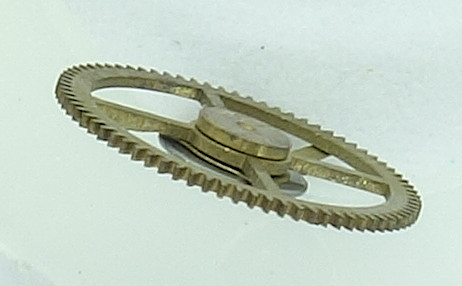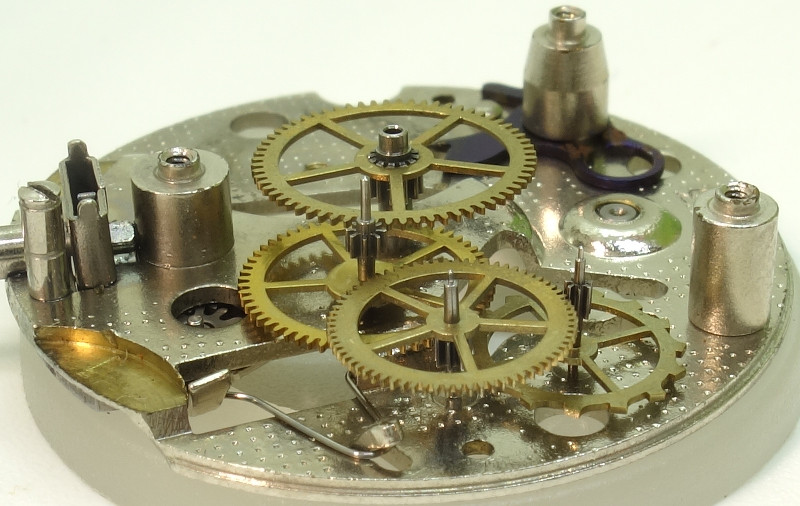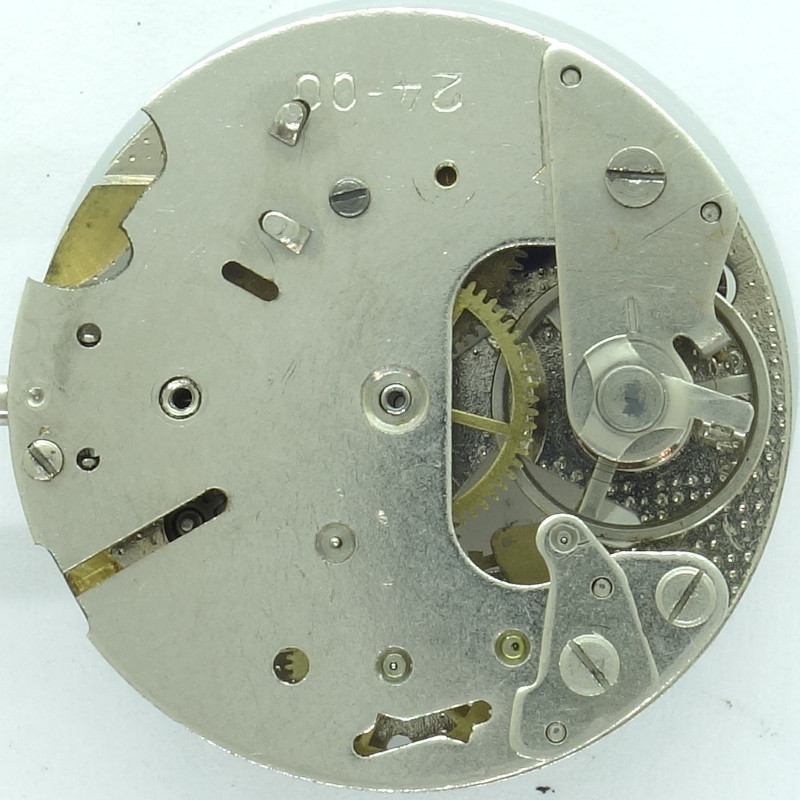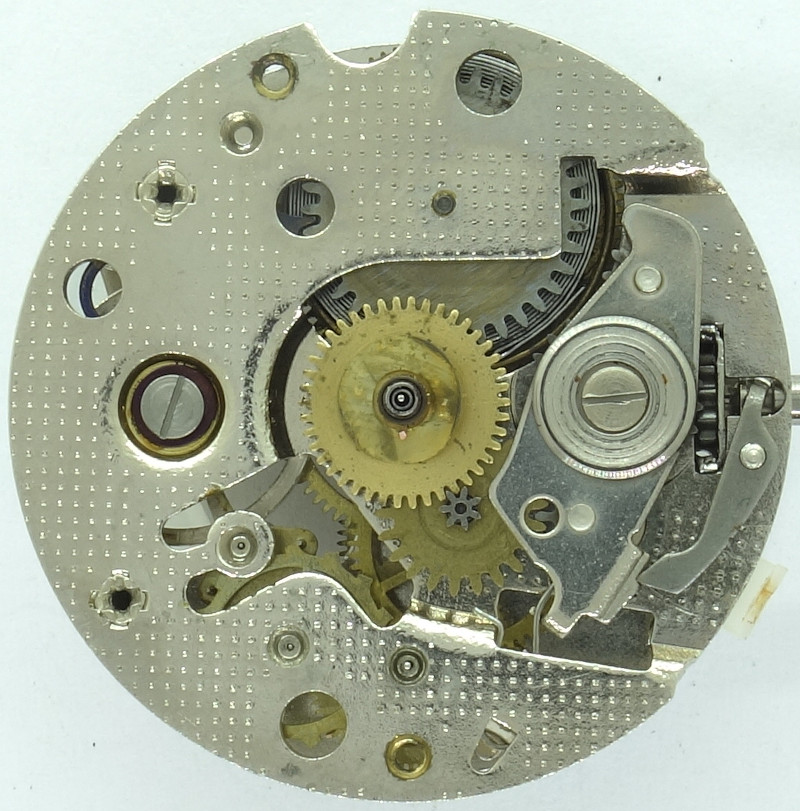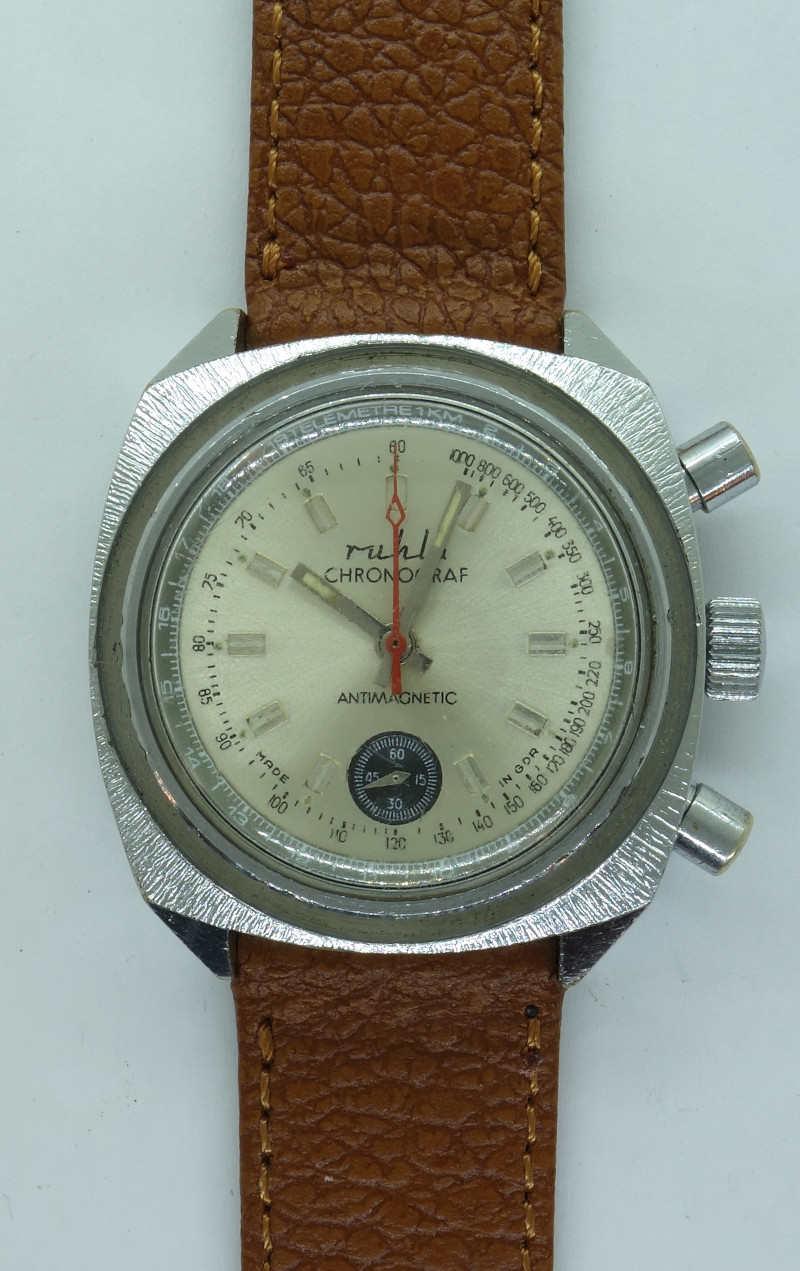Description
Karl Rexer, the german general imprter for GDR watches to West Germany wanted to add a wannabe chronograph to his portfolio around 1970. This watch should only contain two pushers to stop and start the movement, so this would have been more or less a “fake” chronograph.
The engineers of the UMF in Ruhla, who should supply the movements, were not happy with that “fake”, so decided to construct a simple, but efficient chronograph mechanism for the UMF 24, and this was the caliber UMF 24-35 shown here.
As base caliber, the highly automated produced, jewel-less caliber 24, a 10 1/2 ligne pin lever movement in pillar construction, was used, which construction-wise can be dated back to the 1930s.
Accordingly conventional is the gear train with its directly driven center minute wheel, third wheel, decentral seconds wheel at 6 o’clock and escape wheel.
The movement-side pivot of the third wheel is prolonged, as it serves to drive the indirect center seconds hand, whose pinion has got a heart-shaped disc for resetting.
As told, on the pivot of the third wheel, there’s the driving wheel, which engages with the center seconds pinion. This construction is basically the same as on the UMF 24-32, with the exception, that the driving wheel is not fixed, but mounted on a slipping clutch.
The slipping clutch of the driving wheel is responsible, that you can block the center seconds with the upper button without halting the movement.
On versions A and B, the button moves a metal lever, on later version a plastic lever with a spring to block the driving wheel.
This mechanism is patented at least in the USA and in Switzerland .
The UMF 24-35 uses a three-leg anular balance with a pointed staff and hence has got no further shock protection. It beats with 18000 A/h and can be adjusted roughly on the hairspring key directly.
It regulares a pin pallet movement.
The chronograph mechanism uses only a few parts, which can be pointed effortlessly onto the recesses of the gear train bridge.
On the dial side, the UMF 24-35 has got no specialities, except, that this movement effectively uses two seconds indications, one at 6 o’clock and the other one in the form of the center second, which, as written, can temporarily be halted and/or resetted, the latter is called “Flyback”.
In the lab
Timegrapher result
As usual with the caliber 24, the timegrapher results are very poor and cannot be improved. The lots of watchmakers’ marks on the case back of the “Ruhla Chronograph” tell of all the attempts to improve the rates.When the stop function is halted, tne amplitude is reduced again by about 60 degrees.
| horizontal positions | |||
|---|---|---|---|
| dial up | -200 s/d | 152° | 0.5ms |
| dial down | +-0 s/d | 240° | 0.7ms |
| vertical positions | |||
| crown right (12 up) | > +500 s/d | 140° | 0.8ms |
| crown up (3 up) | > +400 s/d | 177° | 1.5ms |
| crown left (6 up) | -10 s/d | 206° | 0.4ms |
| crown down (9 up) | +30 s/d | 131° | 2.1ms |
Technical data
| Manufacturer: | UMF |
| Caliber: | 24-35 |
| Caliber base: | UMF 24-30 |
| Size: | 10 1/2''' |
| A/h: | 18000 |
| lift angle: | 60° |
| Escapement: | Pin lever |
| Balance types: | Nickel anular balance |
| Shock protection(s): | none |
| Balance bearing / direction hairspring: | Clockwise |
| Moveable stud: | no |
| Adjust mechanism: | Hairspring key |
| Construction: |
|
| Construction type: | pillar construction |
| Winding mechanism: | rocking bar winding system |
| Features: |
|
| Production period: | 1970 - 1978 |
| References: | Flume: K3 66 |
| Data sheet: | 1976 |
| Inventory number: | 18018 |
